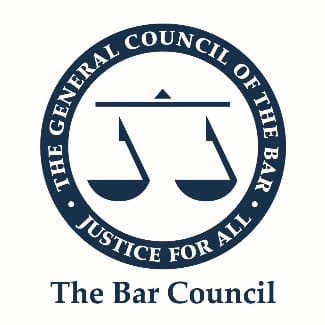NCDR Update – Are the Tides Turning for Failing to Mediate?
Looking back over the last 12 months, 29 April 2024 was an important day for financial remedy practitioners. This was the date the rules concerning NCDR changed. The changes make ignoring the NCDR options a costs hazard. It seemed inevitable that costs orders would follow.
Practice Direction 9A now includes a pre-application protocol which fleshes out the rule amendments. This came into force on 31 May 2024. Section 2.1 now clearly states:
‘The pre-application protocol annexed to this Practice Direction outlines the steps parties should take to –seek to resolve their dispute without applying to court, for example via non-court dispute resolution, andseek and provide information from and to each other before making any application for a financial remedy.
The court will expect the parties to comply with the terms of the protocol.’
Prior to this, whilst NCDR was encouraged, it did sometimes feel as though MIAMs were signed to facilitate issuing an application. The change was a welcome one, as not only did it refocus the benefits of resolving matters outside of court, but it also nicely aligned with the Resolution Code of Practice.
It can often be an incredibly difficult first task, when meeting a client, to try and drive down the tension and animosity. However, many prudent practitioners took the change in the law as a clear warning, not only to us but also to our clients: NCDR must be explored in a genuine manner, or negative costs consequences may follow.
As lawyers we are all too aware of both the time and resource constraints that the Family Court is experiencing. It is apparent that the judiciary, at all levels, are expecting practitioners to take responsibility to ensure that the system is not bombarded with unnecessary litigation. The tension also comes from the practitioner’s end in that we often feel as though the service we are providing to our clients is limited by the delays and limitations of the court, as a result of under-resourcing. It is, therefore, beneficial for everyone to ensure that the necessary and proportionate cases are litigated properly and that others are resolved outside of the court system. This also further builds goodwill between practitioners and the court.
To achieve this, practitioners need to genuinely commit to exhausting NCDR and use court proceedings as a last resort. The court also must be prepared to robustly apply PD 9A and make costs orders against a party who unreasonably fails to comply. Without the risk of such negative consequences, practitioners will be without the tools necessary to be able to actively guide clients to develop a new way of thinking.
Following implementation of the pre-application protocol, some had initially thought the court would take a serious approach with practitioners who did not evidence their genuine engagement with NCDR. Old habits die hard, it seems. As the year has progressed, it has become clear that the FM5 is sometimes simply regarded as another form to file, rather than the court giving it any deeper consideration. As a result, many have continued to see invitations to engage in NCDR refused on spurious grounds and, despite the issue being raised procedurally on a number of occasions, the court has not explored the issue in any detail.
Perhaps to tackle this, a new proforma was included with all issued financial remedy applications from the President which read as follows:
‘An important message
If you think NCDR (non-court dispute resolution) has not been attempted properly in accordance with the letter from the PFD please contact the court within seven days of receipt of this notice and the court will consider the next steps which may include pause in the proceedings until NCDR is complied with.’
Some used this as an opportunity to take the pre-application protocol a step further. In one particular case, which is unreported but was heard in March 2025, my firm took the opportunity to write to the court upon receipt of the application and notify them that PD 9A had not been complied with by the other party. Despite multiple invitations to engage in NCDR, all attempts to do so had been declined by their solicitor who stated the reason for this was that the other party simply preferred the certainty of court proceedings.
After writing to the court setting this out, and indeed some back-and-forth with the lawyer representing the other party, the court took the decision to list the matter for hearing. The case was listed for a short 30 minute hearing to consider the specific issue of NCDR compliance. In this particular case, and with the assistance of an excellent case note and representation from counsel Ms Lisa Jones of 9 Park Place Chambers, Cardiff, the District Judge Matthew Barry determined that the pre-application protocol was clear. NCDR has to be explored unless there is a good reason not to do so. In the words of the protocol, ‘everyone is required to comply with the terms of the protocol even if they have not had professional advice from a legal representative’.
The court adjourned the proceedings for 5 months, after which the parties are to jointly write to the court setting out what engagement there has been with NCDR. The court also awarded our client costs claimed in respect of the hearing, which were incurred directly as a result of the other party’s failure to comply with the new provisions.
It is sincerely hoped that this case represents a step in the right direction, in so far as NCDR is concerned. Many are continuing to come up against opposition to proposals for parties to engage in different forms of NCDR. In another case, yet to be determined by the court, the other party’s solicitor simply did not agree that a Private FDR or Arbitration would be more cost effective to the parties than proceeding to court. In some quarters, there appears a reluctance to explore these alternatives and unfortunately, it seems that impactful changes are unlikely without further harsher costs sanctions forcing people to reconsider.
Financial remedy matters are always difficult, but it should not be a battle to get an opponent to agree that an appropriate form of NCDR is usually a better way to resolve these matters. Often an agreed way forward, without a judge telling the parties what to do, can assist in rebuilding a co-parenting relationship. Of course, whilst children are not the paramount concern in financial remedy cases, they are the first consideration, and it is important they do not become lost in the war of litigation.





